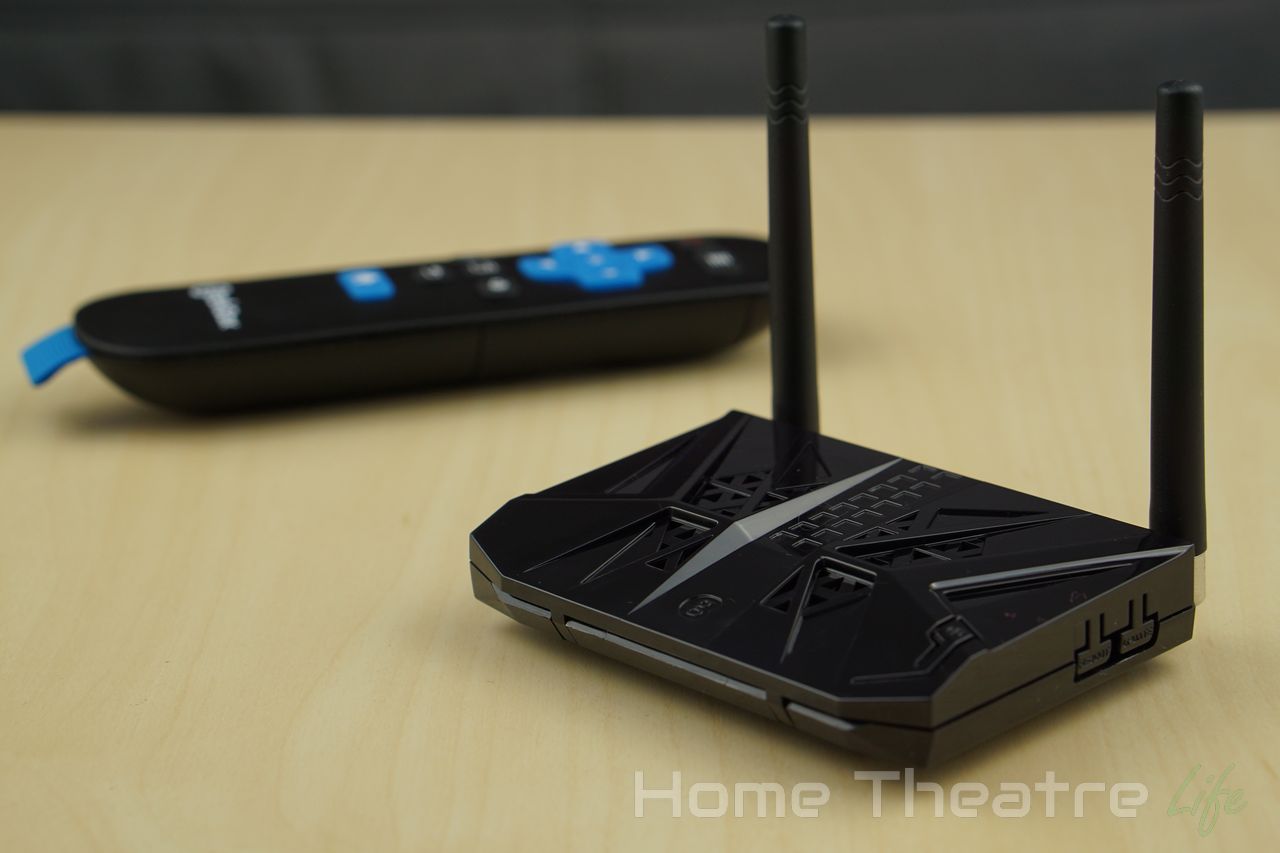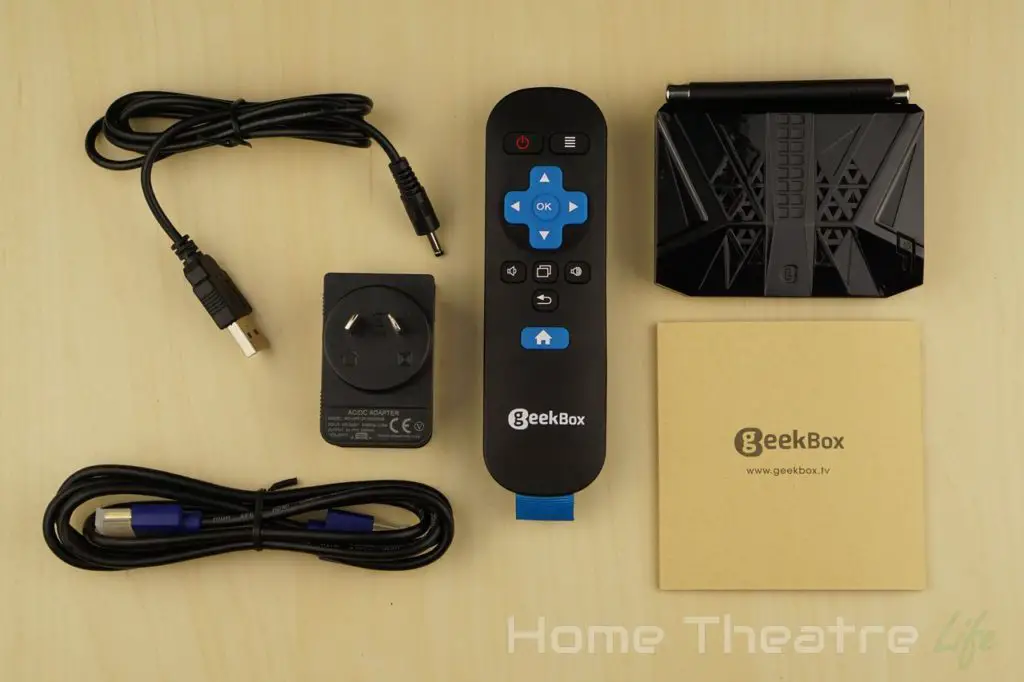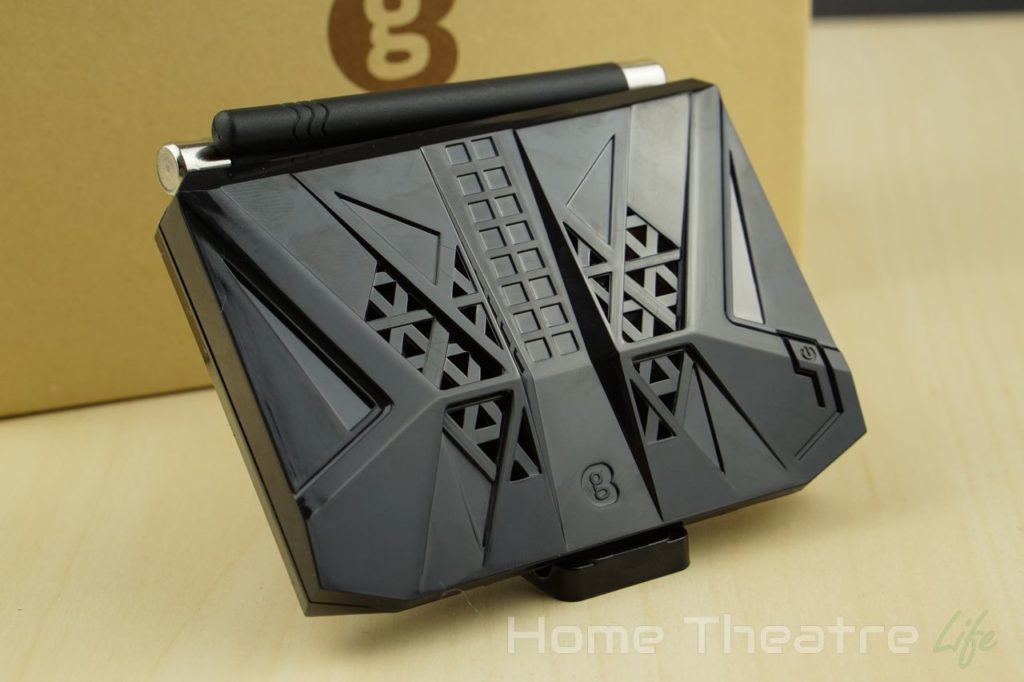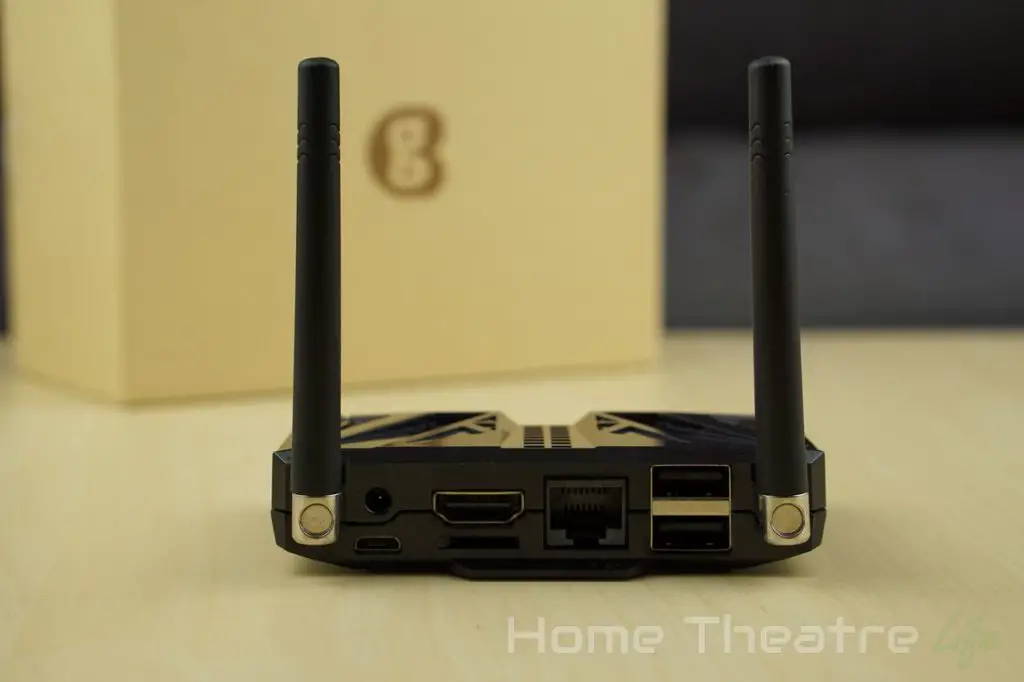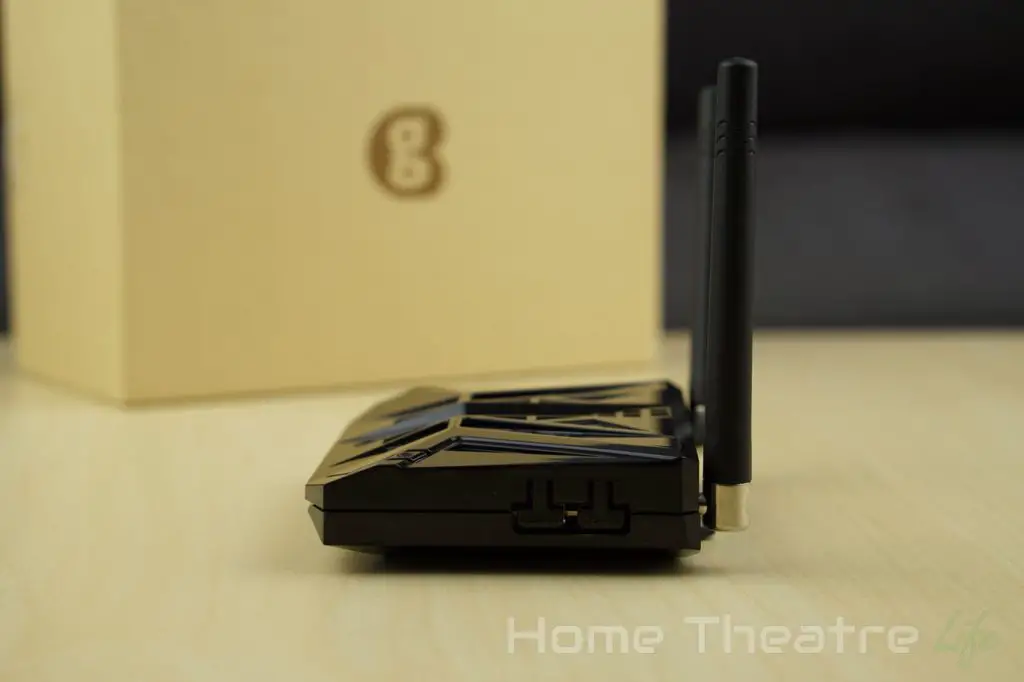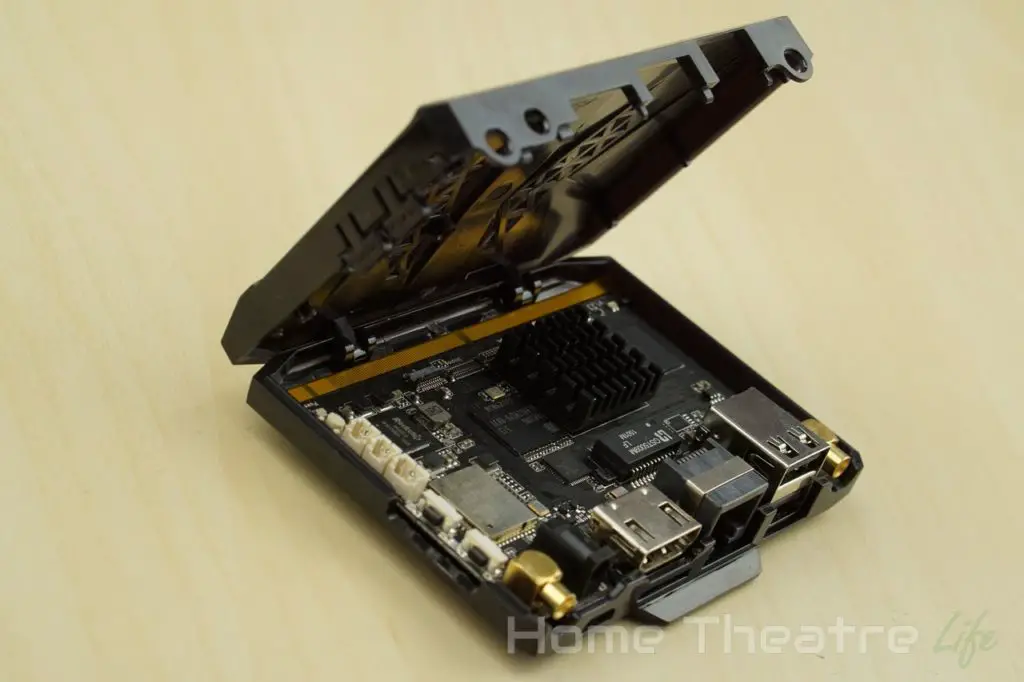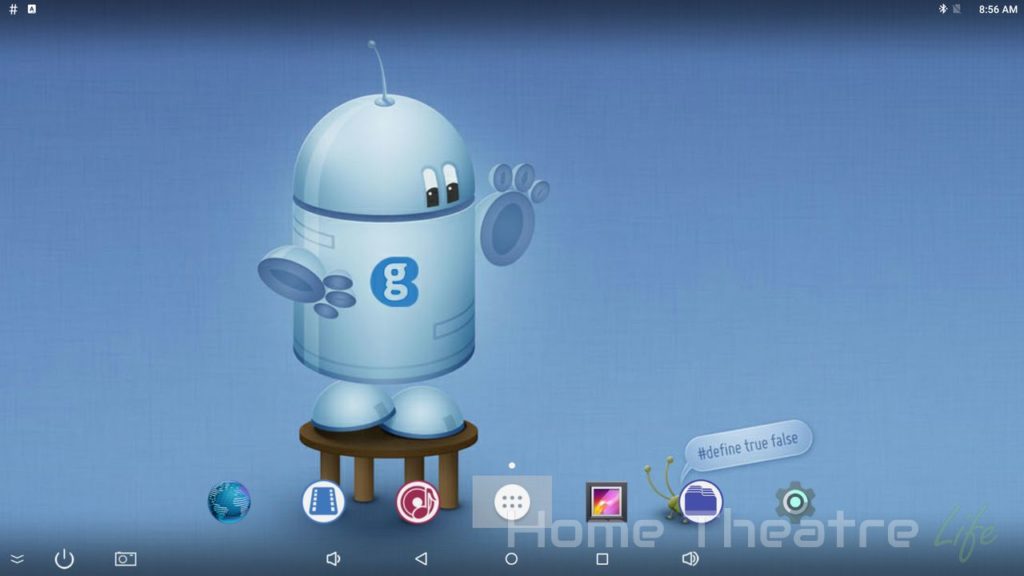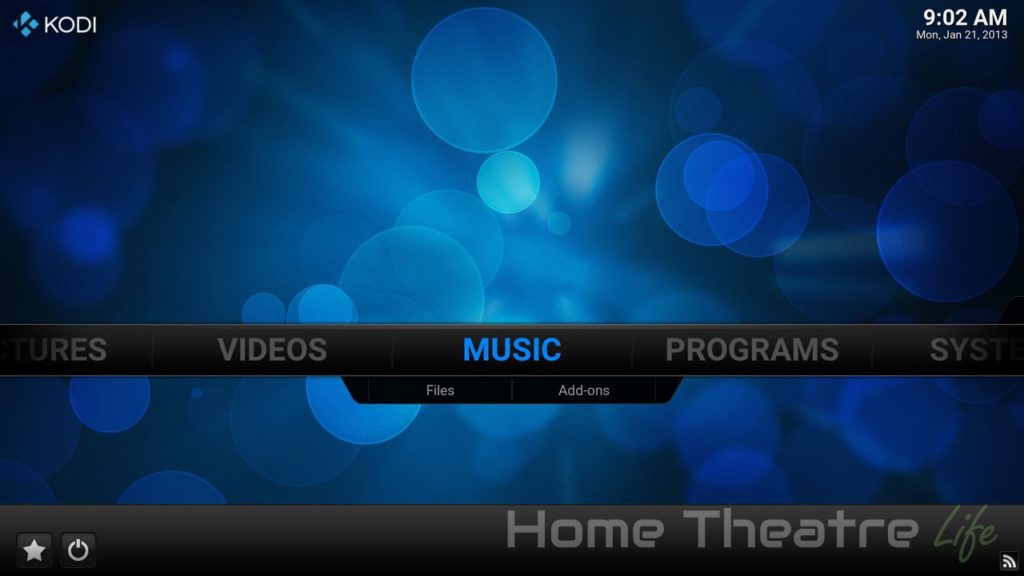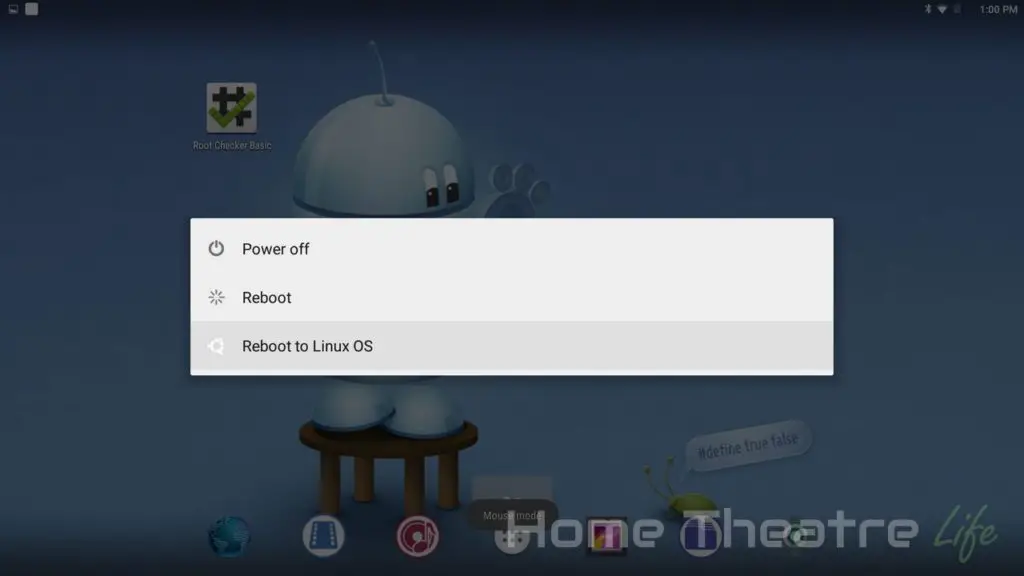The GeekBox is a TV box powered by the octacore Rockchip RK3368 SoC that runs Android and Linux out of the box. It’s also online retailer GeekBuying’s first entrance into the TV box space. However, it’s not just a TV box but a Development platform too. Open up the case, plug the board in to the $30 GeekBox landing strip and tinker away to your hearts content using the various ports and sensors available.
I want to say thanks to GeekBuying for providing me a GeekBox to review.
Check Price at GeekBuyingGeekBox Technical Specifications
[aps_product_specs id=”4774″]
What’s in the Box?
Inside the box, you get:
- 1x GeekBox unit
- 1x IR Remote
- 1x USB power cable
- 1x USB Power Adapter
- 1x HDMI cable
- 1x Instruction Manual
There’s also a host of additional accessories available for purchase including a fan, RTC battery and more.
GeekBox Impressions
The GeekBox’s box was pretty typical for most TV boxes that I reviewed. What surprised me was just how tiny this little device is. At just 90x69x21mm, it’s small enough to fit into the palm of your hand and far smaller than any other RK3368 device I’ve tested to date.
The GeekBox design looks incredible. GeekBuying have designed a translucent case that looks unique and helps it stand out amongst all the other mini PCs on the market. Reminiscent of military aircraft (or an SUV according to GeekBuying’s marketing material), the case features lots of detailed faceted edges and hard lines, much like Netgear’s high end routers.
All the ports are located on the rear of the GeekBox. From left to right, you have a wifi antenna, DC In, micro USB OTG, HDMI In, micro SD card slot, Ethernet, 2 fullsize USB 2.0 ports and a second Wifi antenna.
The right side also houses dedicated reset and update buttons. However, these are just plastic tabs that press the buttons directly on the board. A small power button is also located on the top of the unit.
Removing the two antennas allows you to open up the case and access the innards, including the MXM-III interface and expansion ports for additional components offered by GeekBuying such as a cooling fan.
Powering the unit is done via the power button. A cold boot into Android takes around 24 seconds with a USB keyboard and mouse plugged in. Make sure you plug in the keyboard/mouse before boot as I found it wasn’t detected in Android when it was plugged in afterwards. I’ve reached out to GeekBuying to see if it’s a bug or just an incompatibility.
The GeekBox runs a pretty stock version of Android 5.1. As with other RK3368 devices, the GeekBox handles Android brilliantly and I didn’t notice any slowdowns during my brief tests.
It comes preinstalled with a few apps such as the Aptoide app store, Netflix, ES File Explorer and Kodi 15.2. It’s also rooted out of the box for those that need it.
A quick test of video playback in Kodi was good, with both 1080p H.264 and HEVC samples playing back fine.
Wifi performance appears to be good, as I didn’t experience any buffering whilst streaming both 1080p and 4K H.264 samples from an NFS share on my server.
Gaming performance was respectable. At 1080p, Jetpack Joyride was nice and smooth. Beach Buggy Racing on maximum settings was around 30fps but did dip below when there was more action on screen. Dropping the graphical quality improved the performance immensely.
A quick benchmarking with Antutu 6.0 scored 33102 (Note that Antutu 5.0 and 6.0 scores are not comparable due to benchmark changes) and 3DMark Ice Storm Extreme scored 4336.
Booting into Lubuntu 14.04 can be done via the Power off menu in Android, taking around 19 seconds to make the switch. There’s a few applications pre-installed, including an app to reboot back into Android. Again, the Rockchip RK3368 seems to handle Linux fine although it doesn’t appear that hardware acceleration is currently supported making playback and gaming hopeless under Linux.
Verdict So Far
The GeekBox is an interesting proposition. The unit handles Android well, is hackable for those looking to tinker, and incredibly compact. Linux and LightBiz OS support is also handy, as long as you’re aware of the lack of hardware decoding under Linux at the time of writing.
Keep posted for my full review in the coming days.
Getting One
The GeekBox (and associated accessories) are available from GeekBuying for around $120.
Check Price at GeekBuying